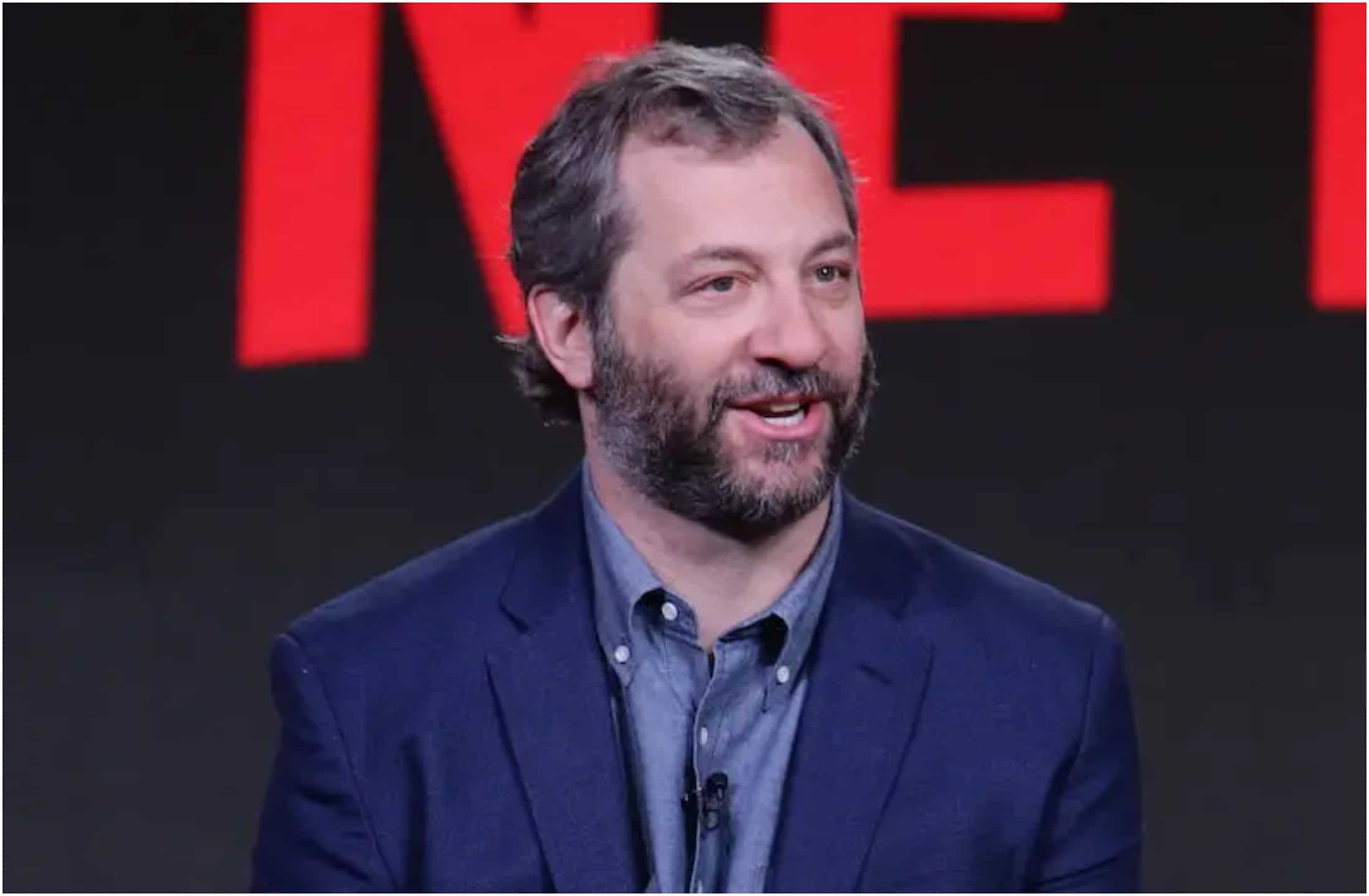Judd Apatow’s Career Trajectory

Judd Apatow is a comedic force who has left an indelible mark on contemporary American comedy. His career has been marked by a consistent evolution, transitioning from a writer and producer to a successful director and producer. His comedic voice has matured over the years, reflecting the changing landscape of humor and societal norms. This journey has been characterized by a blend of observational humor, relatable characters, and a focus on the complexities of human relationships.
Judd Apatow’s Early Career
Apatow’s comedic journey began with his early work on the television show “Freaks and Geeks,” a cult classic that showcased his talent for crafting authentic and relatable characters. This show served as a launching pad for his career, allowing him to collaborate with other talented individuals who would later become prominent figures in the entertainment industry. His work on “Freaks and Geeks” established his signature style, characterized by its blend of humor and heart.
Apatow’s early work was also influenced by his time writing for “The Ben Stiller Show,” which exposed him to the world of sketch comedy and further honed his comedic sensibilities. He also contributed to the writing staff of “The Larry Sanders Show,” a groundbreaking sitcom that pushed the boundaries of television comedy. These early experiences laid the foundation for Apatow’s later success as a writer, producer, and director.
Evolution of Apatow’s Comedic Voice
Apatow’s comedic voice has evolved significantly throughout his career. His early work, such as “Freaks and Geeks” and “The 40-Year-Old Virgin,” often focused on the awkwardness and insecurities of young adults navigating the complexities of life. This style of humor resonated with audiences and established Apatow as a voice for a generation.
As his career progressed, Apatow’s comedic voice matured, incorporating more mature themes and exploring the intricacies of relationships in a more nuanced way. Films like “Knocked Up” and “This Is 40” tackled topics such as parenthood, marriage, and the challenges of balancing personal and professional life. His humor became more observational and relatable, reflecting the complexities of adult life.
Apatow’s Directorial Style
Apatow’s directorial style is characterized by his ability to create a sense of authenticity and intimacy in his films. He allows his actors to improvise and create moments of genuine humor, resulting in a natural and engaging viewing experience. He also has a knack for capturing the nuances of human relationships, showcasing both the joy and the challenges of love, family, and friendship.
Apatow’s films often feature ensemble casts, allowing him to explore the dynamics of various characters and their interactions. This approach adds depth and complexity to his narratives, creating a sense of realism and relatability. His directorial style is also marked by his willingness to embrace awkwardness and vulnerability, allowing his characters to be flawed and relatable.
Apatow’s Work as a Producer
Apatow’s influence extends beyond his directorial work. He has also established himself as a successful producer, nurturing and supporting the careers of many talented comedians and actors. He has a keen eye for talent and a knack for identifying projects with comedic potential.
Apatow’s production company, Apatow Productions, has been responsible for producing a wide range of successful films and television shows, including “Bridesmaids,” “Trainwreck,” and “Love.” His role as a producer allows him to shape the comedic landscape, supporting projects that align with his vision and values.
The Apatow “Brand” and its Impact on Comedy

Judd Apatow has become a significant force in modern comedy, shaping both the industry and audience expectations. His films, while diverse in their plots, share a distinct comedic style that has come to be known as the “Apatow brand.” This brand is characterized by its focus on relatable characters, awkward humor, and emotional depth, creating a unique blend of comedy and drama.
Defining Characteristics of the Apatow Brand
Apatow’s brand of comedy is recognizable for its consistent themes, tone, and recurring elements. His films often center around the lives and relationships of young adults, exploring their struggles with love, careers, and personal growth. The humor is typically observational, drawing laughter from the awkwardness and absurdity of everyday situations. Apatow’s characters are often flawed and relatable, making their struggles resonate with audiences.
- Relatable Characters: Apatow’s characters are often flawed, insecure, and struggling with real-life issues. They are not perfect heroes but rather relatable individuals grappling with the challenges of adulthood. Examples include Andy in “Knocked Up,” and the characters in “40 Year Old Virgin” and “This is 40”.
- Awkward Humor: Apatow’s films are filled with awkward moments, embarrassing situations, and uncomfortable silences. The humor stems from the relatable awkwardness of everyday life, making audiences laugh at the discomfort and absurdity of these situations.
- Emotional Depth: While Apatow’s films are primarily comedies, they often delve into emotional themes like love, loss, and family. The characters are not just funny; they are also complex and deeply human, experiencing both joy and heartbreak.
- Recurring Elements: Apatow’s films often feature recurring elements, such as large ensemble casts, extended dialogue scenes, and a focus on relationships. These elements contribute to the distinctive feel of his films and help to solidify the “Apatow brand.”
Key Collaborations and Influences: Judd Apatow

Judd Apatow’s comedic vision has been shaped by a network of collaborators, each contributing their unique talents to his projects. His career is a testament to the power of creative partnerships, as he has consistently surrounded himself with talented actors, writers, and directors who have helped him refine his style and push the boundaries of comedy. This section will explore the key collaborations and influences that have shaped Judd Apatow’s career, examining the impact of these partnerships on his work.
Notable Collaborations
Apatow’s collaborative spirit has been a defining characteristic of his career. He has fostered a collaborative environment on his sets, allowing for improvisation and creative input from all involved. This approach has led to some of the most iconic moments in his films, and has also helped to launch the careers of many talented actors and writers.
- The Apatow “Repertory Company”: Apatow has worked with a core group of actors, writers, and directors on multiple projects, creating a sense of familiarity and camaraderie that has translated into a distinctive comedic style. This “repertory company” includes actors like Seth Rogen, Jonah Hill, Paul Rudd, Jason Segel, and Bill Hader, all of whom have become synonymous with Apatow’s brand of comedy.
- The “Freaks and Geeks” Connection: Apatow’s early success came with the critically acclaimed television series “Freaks and Geeks” (1999-2000). This show brought together a talented cast and crew, including actors like James Franco, Linda Cardellini, and Seth Rogen, and writers like Paul Feig and Mike White. This collaboration laid the foundation for Apatow’s later work, as it allowed him to develop his comedic voice and explore themes of adolescence and social awkwardness.
- The “40-Year-Old Virgin” Team: Apatow’s breakthrough film, “The 40-Year-Old Virgin” (2005), was a collaboration with writer and actor Steve Carell. The film’s success solidified Apatow’s position as a leading voice in comedy, and it also established a strong working relationship between Apatow and Carell. The duo went on to collaborate on several other projects, including “Anchorman: The Legend of Ron Burgundy” (2004), and “The Big Short” (2015).
Influences, Judd apatow
Judd Apatow’s comedic style has been influenced by a diverse range of directors, writers, and comedians. He has acknowledged the impact of these individuals on his work, often citing them as inspirations for his own approach to comedy.
- Woody Allen: Apatow has cited Woody Allen as a major influence on his work, particularly Allen’s focus on character development and his ability to blend humor with pathos. Apatow’s films often feature characters who are flawed and relatable, and he is not afraid to explore the darker aspects of human nature.
- Harold Ramis: Apatow has also credited Harold Ramis as a significant influence, citing Ramis’s ability to create characters who are both funny and insightful. Ramis’s films, such as “Ghostbusters” (1984) and “Groundhog Day” (1993), often feature a mix of slapstick humor and philosophical themes, which Apatow has incorporated into his own work.
- John Hughes: Apatow has also acknowledged the influence of John Hughes, whose films like “The Breakfast Club” (1985) and “Ferris Bueller’s Day Off” (1986) captured the anxieties and aspirations of adolescence. Apatow’s early work, particularly “Freaks and Geeks,” shares Hughes’s ability to create relatable characters and explore the challenges of growing up.
Judd Apatow, a comedic mastermind, has crafted a career that resonates with audiences on a personal level. His films often explore the complexities of relationships, drawing inspiration from real-life experiences. His work, in a way, mirrors the intricate dance of distributed systems, a field pioneered by Tim Herlihy , a visionary in computer science.
Like Herlihy’s groundbreaking contributions, Apatow’s films challenge conventions and push boundaries, leaving a lasting impact on the landscape of comedy.
